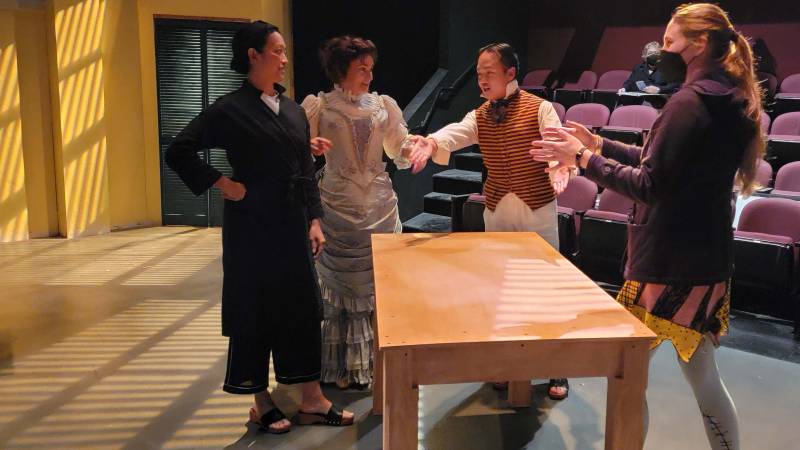If you ask playwright Dustin Chinn for his Joker origin story, he might point to that time in 2016 when Bon Appétit released a video entitled “PSA: This Is How You Should Be Eating Pho.”
You might remember the one — the white chef in a backwards baseball cap confidently dismissing anyone who adds hoisin or Sriracha to their pho broth while, in the very next breath, explaining that he’ll squeeze as many limes into his broth as the restaurant is willing to give him (!!).
It was one of those classic internet moments: There was the swift backlash (much of it from Vietnamese Americans righteously peeved at some dude-bro telling them they’d been doing it wrong this whole time), the defensive non-apology and, eventually, a lengthier mea culpa. For Chinn, who is Chinese American, the incident helped spark a years-long obsession with questions of appropriation, colonialism and cultural ownership in food. Eventually, it culminated in his latest play, Colonialism Is Terrible, But Pho Is Delicious, which debuts this week at the Aurora Theatre Company in Berkeley under the direction of Oanh Nguyen.

“I think what struck me about [the video] was this particular brand of arrogance to suggest that there is a ‘right’ way [to eat pho]. And also for someone coming from the outsider perspective, who didn’t grow up in the tradition, to claim that they had ownership of it — wow, I don’t know where that comes from,” Chinn says. “Where do you cross the line to where you say, ‘I’ve got this. I’ve got this down’?”
The play is set up as a triptych, exploring the aforementioned themes of appropriation and ownership through scenes taken from three imagined moments in the history of pho. The first is a retelling of the dish’s creation story, which is at least partly apocryphal. Chinn’s version focuses on a French aristocrat living in Hanoi during the late 19th century, when the city was the colonial capital of French Indochina. He hires a Vietnamese cook, who has to learn how to prepare pot-au-feu, the French stew that some people believe is the dish that eventually evolved into Vietnamese pho (though this is widely disputed).


